Credit Union or Bank—What’s the Difference?
Every year, millions of people set goals and resolutions to become more fit. Many of these aspirations have to do with losing weight, eating better, or just becoming a healthier person in general. This year, Kohler Credit Union is paving the way for people like you to become fit… when it comes to your finances and financial decisions. We are proud to introduce our Financial Fitness series of blog posts… aimed to help others manage their finances, borrow smarter, grow their money and protect their future. Below you will find the first guest blog post of this series which focuses on the differences between a credit union and a bank.
Credit unions and banks work basically the same way…both accept deposits and use those funds to make loans. So what sets a credit union apart from a bank?
The two financial entities are comparable in numbers. According to the FDIC, there were 6,799 FDIC-insured commercial banks in the U.S. as of February 2014, with roughly $14 trillion in total assets. As for credit unions, there are 6,207 federally insured credit unions, with assets totaling over $1.16 trillion, according to the National Credit Union Association (NCUA).
The fundamental difference between credit unions and banks comes down to ‘ownership’. Credit unions are not-for-profit financial cooperatives whose earnings are paid back to members with higher savings rates and lower loan rates. Banks are for-profit corporations, with declared earnings paid to stockholders.
Not-for-profit credit unions have always focused on people, dreams and results, with that philosophy manifesting itself in four key perks and services that touch every member: voice, purpose, benefits and values.
Voice: As a credit union member, you have a vote in who is elected to run the credit union. Members hold decision-making power. They elect a local, volunteer Board of Directors—versus hiring one—which represents the membership in making decisions and upholding policies. Each depositor has one vote and is invited to participate in annual meetings that affect how the credit union is run.
Purpose: A credit union’s purpose is to help members of all incomes improve their financial position. This includes those struggling with financial issues to those seeking investment advice. And credit unions continually strive to mentor financial well-being by offering free financial education seminars, financial planning presentations, home buying seminars, onsite financial planning, and more.
Benefits: Income made by a credit union is invested in member benefits such as higher dividends and lower interest rates. Plus, fees tend to be lower. Since the start of the ‘Great Recession’ in 2007, credit unions have saved Wisconsin consumers nearly $1 billion by providing fewer and lower fees, lower rates on loans and higher rates on savings. (Benefits of Membership Report, CUNA, Sept 2007- Sept 2012.)
Values: Credit unions are community-centered organizations dedicated to enriching the areas they serve. They also provide local in-house underwriting and mortgage services, so you’re working with a lending expert who will get to know you, the property you own or want to buy, and help find a financial solution that works best for your needs.
Visit our Become a Member page or call 888.528.2595 to learn even more about the benefits of credit union membership. You are eligible for membership at Kohler Credit Union if you live or work in Sheboygan, Calumet, Fond du Lac, Manitowoc, Milwaukee, Ozaukee, Washington or Waukesha County.



